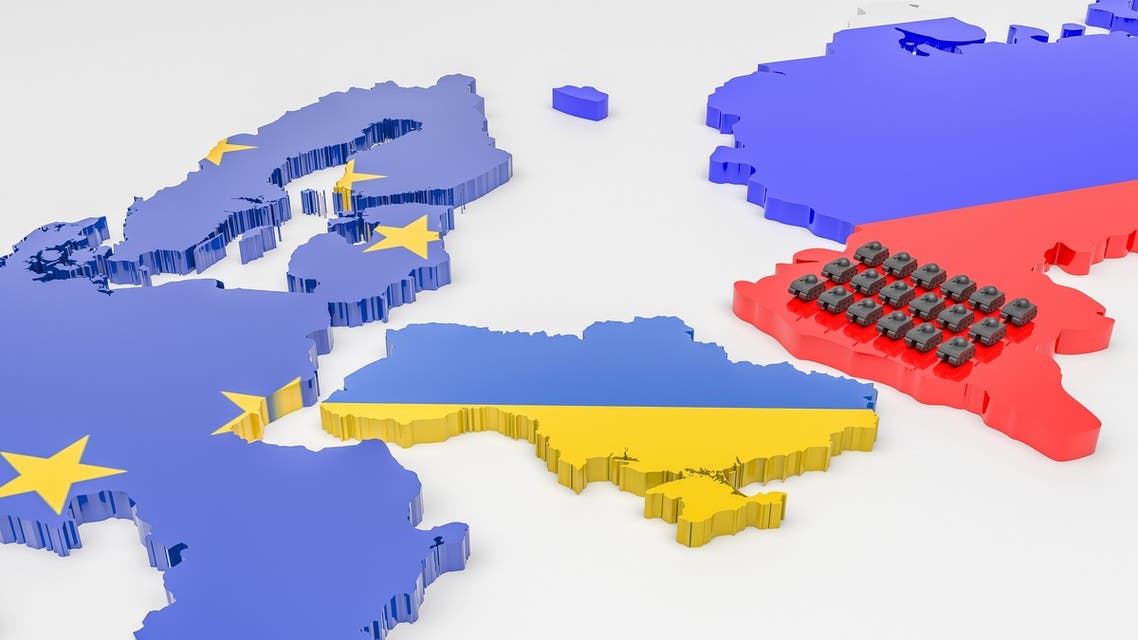Afifeh Abedi, speaking in an interview with the website of the Strategic Council on Foreign Relations, pointed to the escalation of political tensions between Russia and Europe and their measures regarding energy, noted: Russia-EU relations are influenced, on the one hand, by complex regional, geopolitical, political, security, economic and energy factors and variables and, on the other hand, by international factors, especially the relationship between Russia and the United States.
She added: The Russians have always viewed the United States as a negative factor in the Moscow-Brussels relationship, as evidenced by Putin’s recent remarks about Russia’s differences with the European Union and NATO and Russia’s non-opposition to Ukraine’s membership in the European Union. He argued that the European Union is a political and economic union, while NATO has a security and military nature that is actually working against Russia.
Impact of joint Europe-US security structure on Europe’s approach to Russia
The analyst of Russia affairs, saying that Russian Foreign Minister Sergei Lavrov had previously spoken several times about US intentions to undermine Russia-EU relations, added: Europeans are also aware of the role of the United States regarding Brussels-Moscow relations; however, the joint security structure of Europe and the United States has a profound effect on Brussels’ political-defense-economic approach to Russia and intensifies the hostile actions and reactions of Russia and the European Union against each other.
Abedi said: Until the Russian invasion of Ukraine, two geopolitical factors and the economic and energy dependence of Russia and the European Union controlled the level of hostility between Moscow and Brussels, but the two sides’ mutual efforts to reduce dependence over the past decade and a half and the Ukraine war has reduced the effect of those two factors.
She also considered the issue of energy in Russia-Europe relations as a factor in their interdependence and a tool for bargaining and imposing pressure on each other, adding: The EU and Russia are taking various approaches to reduce the level of sensitivity and vulnerability in the gas conflict. The European Union is trying to diversify its energy supply and Russia is trying to diversify its energy market, but Russia still has exclusive control over the European gas and oil market. The energy crisis in Europe and Russia’s economic need for the European market prevent a complete rupture of such relationship.
The expert on Russia affairs, saying that scenarios can be put forward for reducing the EU’s energy dependence on Russia in the medium and long term, noted: Especially since the EU and Russia had begun to change direction from this dependence before Russia invaded Ukraine. Reducing Europe’s dependence on Russian energy and focusing on the East Asian market could increase the factors influencing the transformation of the international system.
Abedi added: Reducing Russia’s income from the European energy market will make it dependent on the markets of other regions, especially East Asia. This will affect the exchanges of Russia and the Eastern powers in other areas, but Russia, due to its military and nuclear power and membership in the UN Security Council, will remain a global political and military power.
Regarding Europe’s ability to regulate its relations and use mechanisms to manage and control tensions with Russia without US intervention, she said: Due to historical, political and security factors, uncertainty and pessimism between Russia and the EU will not disappear without the US factor. Whereas the experience of world wars and the political, economic, and security entanglement of the Atlantic on both sides has led to traditional European conservatism on issues of sensitivity for the United States; in other words, even with Washington’s green light to Europe for the continuation of Brussels’ economic relations with Moscow, tensions will remain at the political level.
Russia not to neglect benefits of economic, energy relations with Europe
The expert on Russia affairs also noted: The Russians are very pragmatic in foreign relations and do not neglect the benefits of economic and energy relations with Europe. The remarks by Russian officials show that they see the protracted crisis in the Ukraine war as a Western trap and at the same time are more willing to manage tensions with Europe and the United States.
Referring to the various scenarios for the war in Ukraine and the US effort to continue the war of attrition, Abedi commented on the readiness and strength of Russia and Europe for them an said: Certainly the two sides have optimistic and pessimistic scenarios, but from the very beginning the European and the US program was to control the level of tension by increasing Russia’s spending on the Ukraine war. That program still remains a priority for Europe, and they want Russia to suffer irreparable damage in the Ukraine war in order to reduce its threat to Europe.
She cited Putin’s warning about the possibility of using nuclear weapons to protect Russia’s survival, adding: The level of tension and hostility between Russia and Europe had reached a point where it was virtually impossible to return it to before the Ukraine war. It is possible that in the end the level of such tensions will be controlled and only a part of the political and economic relations between the two sides will be established and maintained, which is inevitable; in any case, the situation does not go back to before the crisis in Ukraine.
Abedi, referring to the EU adherence to US strategic safeguards against Russia despite high economic losses for Europe and Russia, continued: This was a long-term policy pursued by the United States, and increasing the distance between Russia and Europe compared to the past is a strategic US policy to be able to keep Europe with itself and to focus its foreign policy on China and the Pacific.










0 Comments